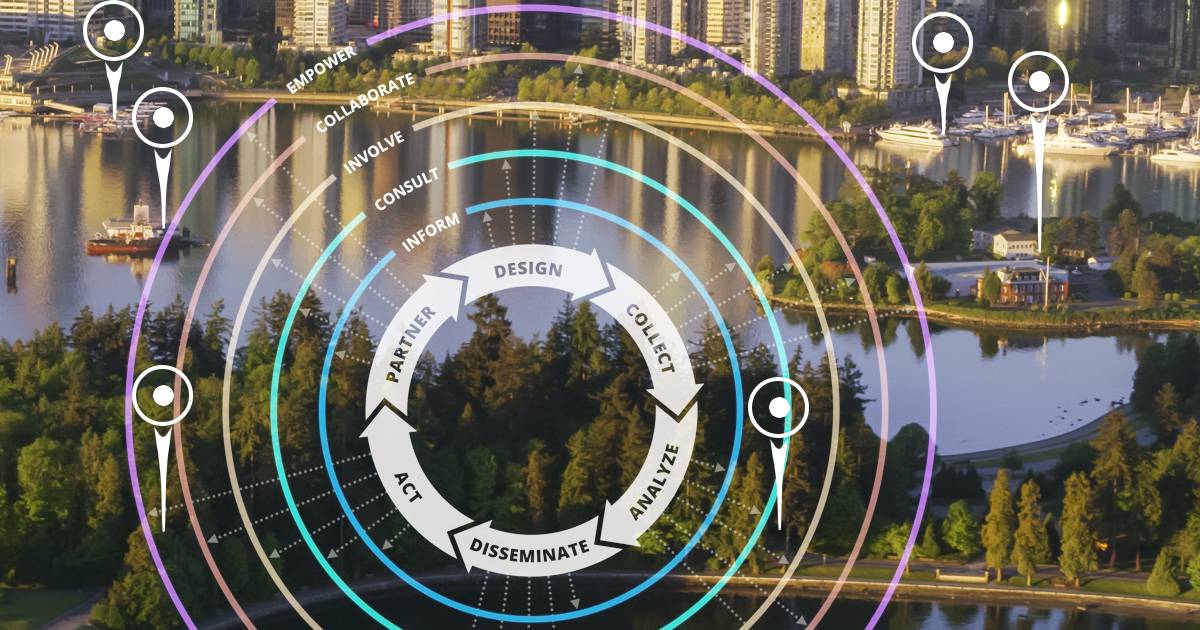This introduction belongs to the article “The Outreach of Participatory Methods in Smart Cities, From the Co-Design of Public Services to the Evaluation: Insights From the Athens Case Study”, and was published at the International Journal of Urban Planning and Smart Cities. Authors: Elisa Pautasso (LINKS Foundation, Italy), Antonella Frisiello (LINKS Foundation, Italy), Mario Chiesa (LINKS Foundation, Italy), Enrico Ferro (LINKS Foundation, Italy), Fabrizio Dominici (LINKS Foundation, Italy), Gregory Tsardanidis (Open Lab Athens, Greece), Ioannis Efthymiou (Open Lab Athens, Greece), Giannis Zgeras (Open Lab Athens, Greece) and Vasilis Vlachokyriakos (Open Lab Athens, Greece).
The concept of Smart City
The concept of Smart City has evolved in the last decades, and it involves several factors: digital technology, disruptive innovation, and urban environments.
From the initial attempts to directly link the Smart City paradigm to a technology-driven approach that considers the integration of information systems with urban processes, the attention has shifted to a more comprehensive vision that focuses on different facets of urban sustainability at its core.
Core initiatives
In this context, the discussion about effective and innovative methods to better design and provide public services that meet citizens’ needs assumed vast relevance. Citizens’ engagement has been recognised as one of the main drivers for enhancing public services delivery.
In this regard, the initiatives carried out worldwide are manifold. The European Commission has considered the importance of delivering innovative public services that take into consideration real citizens’ needs, including such reflections in the European Union (EU) eGovernment Action Plan 2016-2020.
Moreover, many projects supported by the EU aim to deliver innovative eGovernment solutions, applying principles such as ‘digital-by-default’, ‘user-centricity’ – in particular, ‘citizen engagement’ – and ‘once-only’. By using the full capacity of some disruptive technologies, the end-users cooperate with the Public Administrations (PA) and become able to co-produce the public services that suit them. Thus, citizens’ engagement assumes relevant importance for enhancing trust in institutions, increasing transparency and accountability, and reinforcing social cohesion. Changing the methods of development, maintenance and delivery of public services and public goods, novel practices of ideas generation and design come to attention.
Participatory design approaches and co-design processes are crucial for such services, to engage a variety of stakeholders in a meaningful way, and to apply more socially sensitive frameworks.
The Outreach of Participatory Methods in Smart Cities, From the Co-Design of Public Services to the Evaluation: Insights From the Athens Case Study. International Journal of Urban Planning and Smart Cities @IGIGlobal 👉 https://t.co/Jl2D1mnU5K #CO3project #H2020 #Codesign
— CO3 Project (@Co3Project) January 14, 2021
Moreover, after the 2008 crisis, the withering of public welfare services has set the ground for the development of urban commons.
Urban commons represent a concrete framework-solution to give municipalities the potential to create new forms of welfare exploiting practices of co-creation and co-management of public services.
In fact, Urban commons can be defined as public spaces or goods in a city (e.g., urban green zones, abandoned buildings, etc.) that can be directly managed by citizens.
In this way, they become able to associate city-life costs to their use, value and maintenance costs rather than the market-driven value. Some examples of urban commons are community gardening, urban farms on the rooftops, and cultural spaces.
Reformulation of “Smart City”: Citizenship and Participation
Researchers proposed commoning as a possible principle for co-production, which differs from the new public management logic.
The concept of co-production has been emerging in the research community as an innovative and alternative mechanism of public services provision. It refers to the service delivery process of public services in which citizens are directly involved with professional service agents.
Furthermore, digital technology has a significant impact on changing the notion of citizenship and participation. The production and delivery of public services have also been affected, mainly through the digitisation of public services aiming at effectiveness and transparency. Nonetheless, it is doubtful whether technology by itself can alter social and organisational structures. Are disruptive technologies, already claiming to have the ability to “disrupt” business sectors, able to disrupt public services as well? Further, within this notion, the idea of a Smart City has been described as an urban environment with ambient technology.
Whether this concept is compatible with the democratic design and bottom-up approach, such as the co-production of public services is a question still at large.


